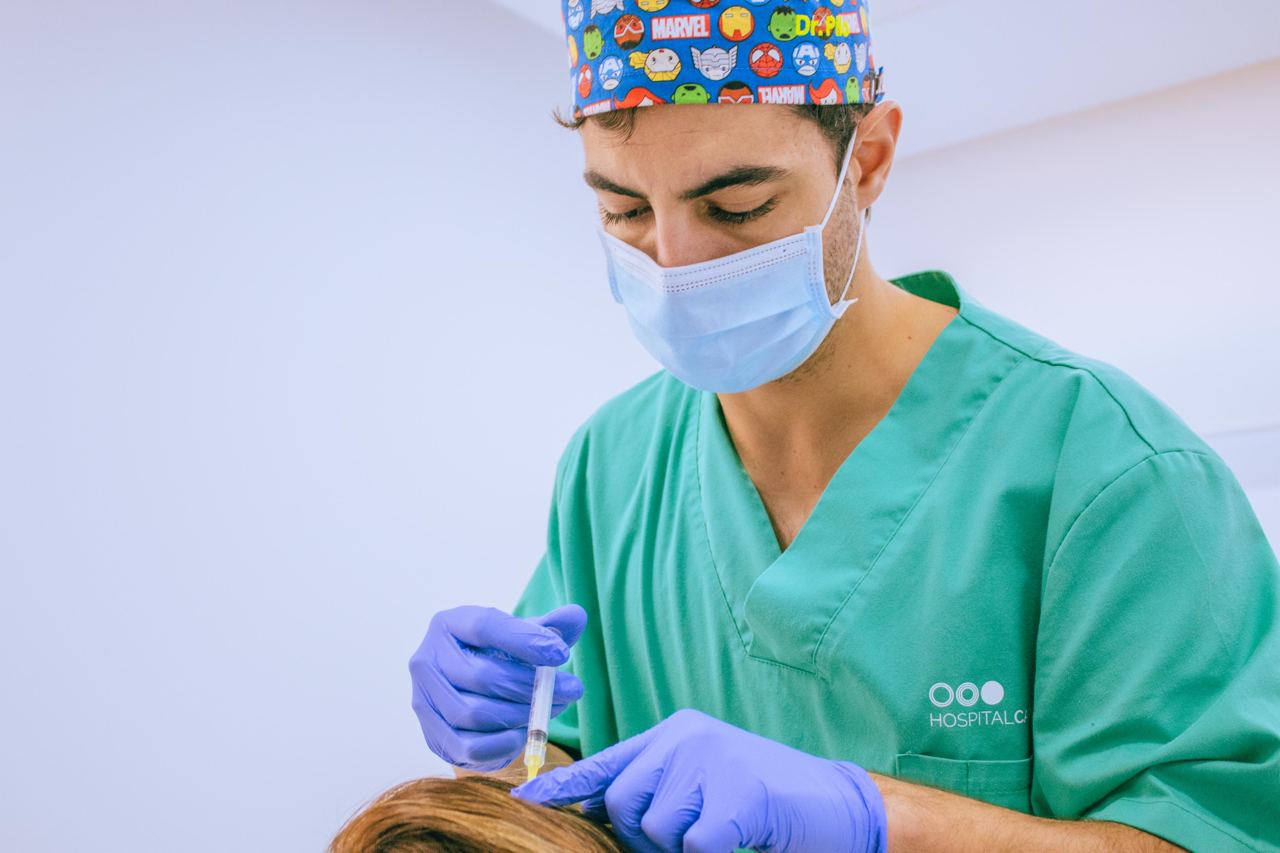
Looking healthy and quality hair is sometimes complex when you have frizz or frizz effect. It is a very common problem in people with long hair and, if you do not know how to act, it is difficult to control it. Therefore, knowing how to avoid hair frizz is key in these cases to improve the texture and appearance of the hair.
En Hospital Capilar, hair clinic in Spain, we tell you how to avoid frizz in 5 simple steps that you can apply to your day to day without having to invest a lot of time.
Hair frizz could be defined as the fraying of the hair that makes it look dull and frizzy. This occurs when the hair shaft breaks for certain reasons and produces static electricity, causing the hair to swell, take up more space and, consequently, lose its natural shape.
People with curly or wavy hair tend to have frizzy hair more often. This is because this type of hair is more porous and abundant, which prevents the natural sebum from the scalp from reaching the hair fiber properly. In this way, external agents that cause hair frizz arrive more easily, generating the frizz effect on the hair shaft.
One of the keys to knowing how to avoid hair frizz is knowing precisely why your hair is frizzy. Frizzy hair is caused by dehydration and lack of moisture in the hair. When you don't have adequate hydration, the hair looks for the nutrition lost in that little moisture, the stem breaks and makes the hair rougher, more unruly and with split ends.
In short, the hair frizzes when the hair is not sufficiently hydrated. There are certain factors that can dry out the hair fiber, causing, in turn, frizz in the hair.
It is very common for sudden changes in temperature, cold and rain to cause frizzy hair. In addition, being in very humid areas, such as near the coast, can also cause the hair fiber to dry out, causing frizzy hair.
When a proper one is not followed hair care routine we can incur hair problems such as hair loss or capillary dehydration. Some of the bad practices that cause hair to frizzy are, among others, brushing the hair roughly, abusing heat sources such as irons and dryers, and excessively resorting to chemicals such as dyes.
In the same way that diet and hair loss are related, it also influences the quality of the hair fiber. When you don't follow a balanced diet rich in vitamins and minerals, you are more likely to have frizzy hair.
Knowing how to avoid hair frizz is essential to show off healthy, nourished and quality hair. There are certain aspects to take into account in our day to day with which we can reduce and treat frizzy hair. It is enough to adapt our routine to have hair frizz under control.
As we have previously mentioned, frizzy hair is due to dehydration of the hair fiber. This is why it is recommended to use moisturizing hair products that help keep hair nourished. It is also very useful in these cases to use oils or serums that help seal the cuticle.
Hot water dries out hair excessively. This is why it is recommended to rinse the hair with warm or cold water, since the cold closes the cuticle and gives the hair more shine. When drying the hair, it is recommended to use cotton or microfiber towels, pressing gently on the scalp and sliding it along the length of the hair.
If we brush the hair roughly it affects the frizz of the hair. It is advisable to use brushes or combs made of natural or wooden bristles, which reduce the static electricity of the hair.
It is important to reduce the use of heat sources such as irons or dryers. In the case of using them, apply before a thermal protector to protect the hair fiber.
There are certain haircuts that favor frizzy hair. Specifically, straight and layered haircuts increase the chances of suffering from frizz. It is advisable to choose hairstyles with long layers or for long hair with pointed ends. In this way the hair does not curl so much since the ends support a greater weight.

In addition to frizzy hair, other problems such as hair loss can affect the aesthetics of the hair. In Hospital Capilar We have effective hair treatments to stop hair loss, as well as hair transplants in Madrid, Murcia and Pontevedra with which to recover lost hair. Request your free medical diagnosis and put yourself in the best hands!
Sanitary Reg. No. Pontevedra: C-36-003121 Sanitary Reg. No. Madrid: C517593 Sanitary Reg. No. Murcia: 30800014


Copyright © 2021 - Legal Notice and Privacy Policy - Cookies policy